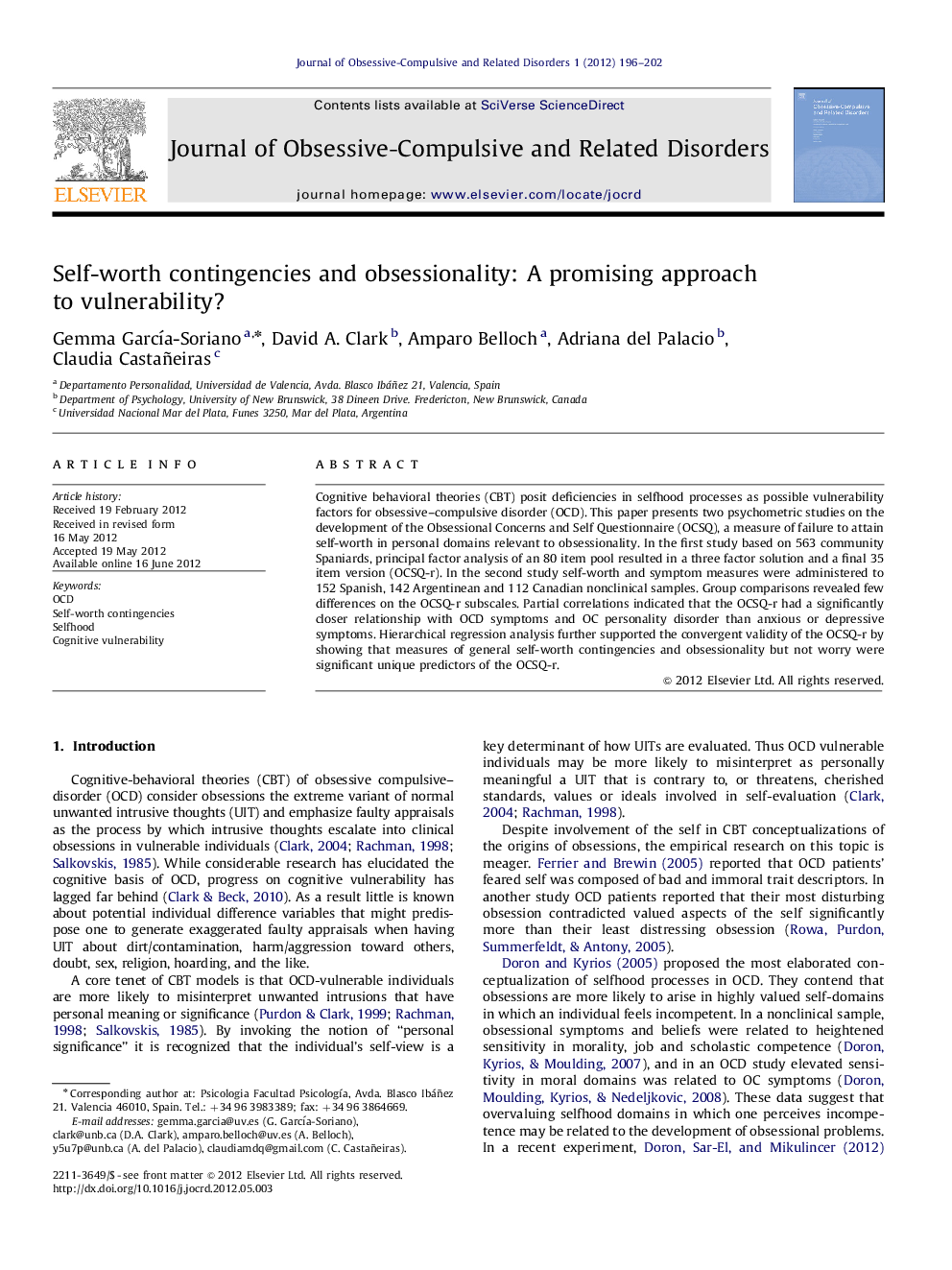| کد مقاله | کد نشریه | سال انتشار | مقاله انگلیسی | نسخه تمام متن |
|---|---|---|---|---|
| 912348 | 918209 | 2012 | 7 صفحه PDF | دانلود رایگان |

Cognitive behavioral theories (CBT) posit deficiencies in selfhood processes as possible vulnerability factors for obsessive–compulsive disorder (OCD). This paper presents two psychometric studies on the development of the Obsessional Concerns and Self Questionnaire (OCSQ), a measure of failure to attain self-worth in personal domains relevant to obsessionality. In the first study based on 563 community Spaniards, principal factor analysis of an 80 item pool resulted in a three factor solution and a final 35 item version (OCSQ-r). In the second study self-worth and symptom measures were administered to 152 Spanish, 142 Argentinean and 112 Canadian nonclinical samples. Group comparisons revealed few differences on the OCSQ-r subscales. Partial correlations indicated that the OCSQ-r had a significantly closer relationship with OCD symptoms and OC personality disorder than anxious or depressive symptoms. Hierarchical regression analysis further supported the convergent validity of the OCSQ-r by showing that measures of general self-worth contingencies and obsessionality but not worry were significant unique predictors of the OCSQ-r.
► The OCSQ is self-report questionnaire that assesses self-worth contingencies that may characterize heightened obsessionality.
► Elevated personal impact of morality, duty & saving concerns have specific union with obsession symptoms and personality traits.
► Self-worth contingency in OC-relevant personal domains holds promise as potential cognitive vulnerability for obsessionality.
Journal: Journal of Obsessive-Compulsive and Related Disorders - Volume 1, Issue 3, July 2012, Pages 196–202